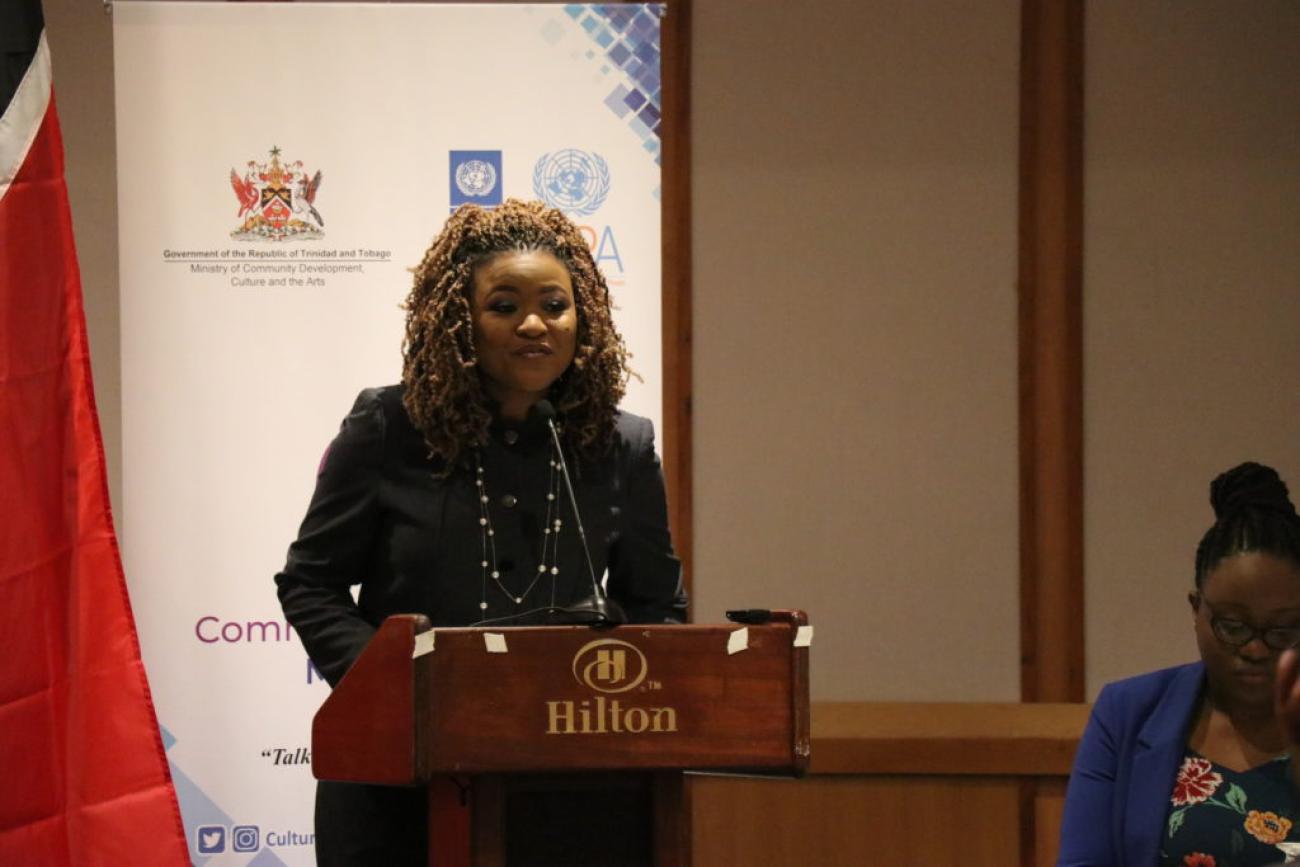The Ministry of Community Development, Culture and Arts works with UN to launch CIMP project to eliminate community violence

The CMs will benefit from a 5-Day (40 hour), based on a training module earlier developed by a team of consultants.
To effectively respond to the level of crime in Trinidad and Tobago, the United Nations in Trinidad and Tobago under the UNDP-DPPA Joint Programme and the Ministry of Community Development, Culture and Arts joined forces to develop the Community Inclusive Mediation Project (CIMP). This CIMP Pilot Project seeks to train, mentor and deploy 25 ‘citizen mediators’ (CMs) who will work under the tutelage of the Community Mediation Services Department (CMSD) to deescalate and resolve conflicts that arise in their communities.
The main objective of the CIMP Pilot Project is to strenghten the culture of peace in communities, divert conflict parties away from an overburdened judiciary, improve the efficiency and impact of the CMSD, broaden the poll of resources available for peacebuilding in communities and transfer skills and best practices from Trinidad and Tobago to other countries in the Caribbean region.
The 25 CMs in this pilot phase of the project were selected from Carenage (North), South Orropuche (South) and Sangre Grande (East) of Trinidad. This was done after mapping the key mediation needs of the communities and obtaining feedbacks on active interlocutors, with capacity for peacebuilding, from members of the communities. The communities were selected based on the following: population density; poverty level and access to social support; history/ likelihood of interpersonal conflict; crime history; difficulties in accessing current state-sponsored mediation/ social services; and proximity to mediation centres and/or its mediation mobile units.
Participants for the programme were selected based on specific criteria. A list was developed of nominated individuals, considering their previous experiences with volunteerism, engagement in social/community work, absence of criminal records and other criteria. Sensitization sessions were then organized for selected persons in batches, to inform them of the objectives of the project and get their buy-in for participation. Persons selected comprise of social workers, police officers, women leaders in local NGOs, business and religious persons, as well as civil servants, who live within the communities. Each CM will be made to sign a volunteer agreement form that covers the government and UN against risks related to misdemeanor while mentorship support and supervision from the CMSD will enhance the use of best practices by the CMs.
The CMs will benefit from a 5-Day (40 hour), based on a training module earlier developed by a team of consultants. This shall be a residential training programme that covers the mediation process, negotiating skills, family issues, ethics, agreement writing and closure. The module has been made to conform to UN standards without taking away the time-tested local dynamics, contextual issues and methodologies.
The trained CMs will be deployed to their respective communities to undergo the mentorship phase of their training. During the period, they will be required to complete at least 5 cases, with mentorship support from CMSD Staff and the 2 Consultant hired by the UNDP-DPPA Joint Programme. They will utilize their community spaces to undertake their mediation. A number of ad hoc training will be delivered by the CMSD, to the mediators based on feedbacks from the field. These will include emotional intelligence, effective communication, conflict de-escalation, stress and trauma management. After the mentorship session, an exit assessment (comprising mock mediation sessions) will be conducted to test the proficiency and capacity of the beneficiaries. The successful mediators will continue working on basis of assigned cases and supervision of the CMSD, at the end of the pilot phase.
At the end of the mentorship, the CMSD and the ‘Joint UNDP-DPPA Programme’ will organize a Regional Lessons Learned Conference on Peace Mediation. The Conference will showcase some of the issues arising from the pilot, and lessons learned will be shared with key actors from the 14 other CARICOM Countries. The Joint Programme will then build on this to enhance similar practices in the other Caribbean states.
The CIMP Pilot Project which started in July 2019 is expected to end in June 2020.


